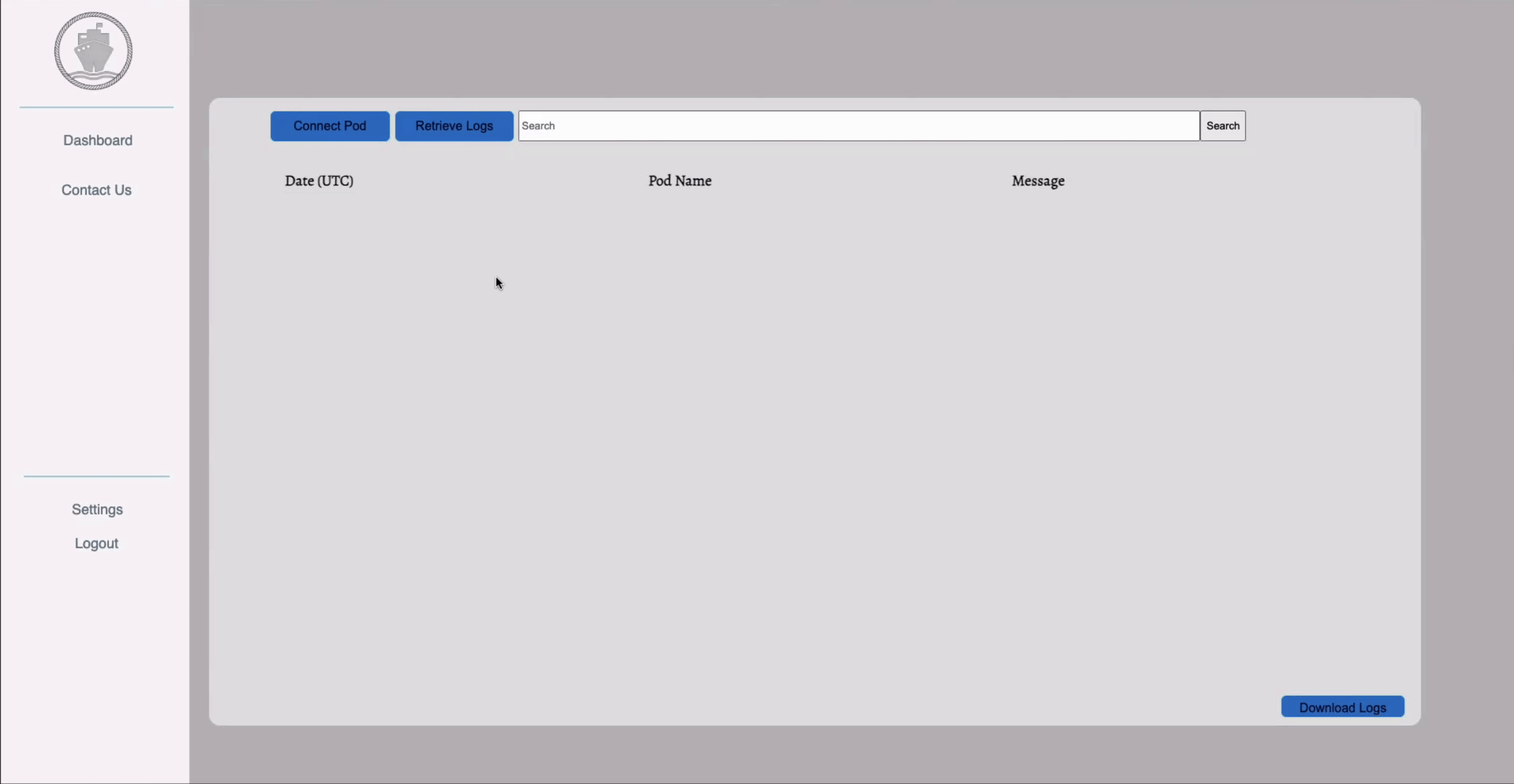Locating errors in Kubernetes pods can be challenging, as developers are required to sift through extensive log data from all pods in the terminal, especially when an application is running on many pods.
Now, developers can use LogKaptain, an open source web application, that offers a dashboard view of all logs from each pod, allowing developers to locate and handle pod errors in a timely manner. Developers can search for keywords to filter log messages, export the log data as a CSV, and connect to a Jira account to create tickets.
With LogKaptain, developers can streamline the error location process, ensuring efficient troubleshooting and smoother application management.
This application requires you to have Docker and Kubectl installed in order to view your local kubernetes cluster. Please download based on your operating system from the official website.
You can read detailed instructions here.
Create your Dockerfile
#syntax = docker/dockerfile:1
FROM node:18-alpine
WORKDIR /app
COPY . .
RUN yarn install --production
CMD ["node", "src/index.js"]
EXPOSE 3000
Build the app’s image
$ docker build -t getting-started .
You can read detailed instructions here.
Turn on Kubernetes in Docker Desktop
You can read detailed instructions here.
Create a Kubernetes YAML file In this file, you should have two objects, separated by the ---. The first is the deployment which describes a scalable group of identical pods The second is a NodePort service which will route traffic from a port on your host to a port inside the pods allowing you to reach your app from the network.
Import YAML File Add your YAML file /server/k8s folder of the LogKaptain application.
Example of YAML file
apiVersion: apps/v1
kind: Deployment
metadata:
name: bb-demo
namespace: default
spec:
replicas: 1
selector:
matchLabels:
bb: web
template:
metadata:
labels:
bb: web
spec:
containers:
- name: bb-site
image: getting-started
imagePullPolicy: Never
---
apiVersion: v1
kind: Service
metadata:
name: bb-entrypoint
namespace: default
spec:
type: NodePort
selector:
bb: web
ports:
- port: 3000
targetPort: 3000
nodePort: 30001
Install the dependencies:
$ npm install
Run application with:
$ npm run dev
The app will run on http://localhost:5173
For first-time users, a quick registration is required. Go to www.logkaptain.com and click the sign up button. If you’re already a user, proceed with logging in.
The "Connect Pod" button is currently inactive, but will be fully functional in future updates. When you log in for the first time, simply click the "Connect Pod" button to seamlessly link your Kubernetes pods with your LogKaptain account.
If your company uses Jira for issue tracking, you can editing the following file located in server/controllers/issueController.js to integrate Jira for bug tracking. Please update jiraApiUrl, jiraUsername, jiraPassword, and key to your respective Jira account.
// Jira API endpoint and authentication credentials
const jiraApiUrl = 'https://yourDomain.atlassian.net/rest/api/2/issue';
const jiraUsername = 'your atlassian email address';
const jiraPassword = 'your api token'; // Atlassian API token you can generate in Jira
// Jira issue data (We can customize this based on our requirements)
const issueData = {
fields: {
project: {
key: 'your project key on Jira',
},
summary: summary,
description: description,
issuetype: {
name: 'Bug',
},
},
};
After completing the initial setup, you can access the latest logs from all your Kubernetes pods by clicking on "Retrieve Logs."
Utilize the search bar to quickly and efficiently find specific log information you’re looking for.
Obtain a portable version of your logs by clicking the Download Logs button to export your logs as a CSV.
Create a Jira ticket from LogKaptain to streamline issue tracking, promote improved collaboration among development teams, and ensure that tasks are prioritized based on their importance and impact.
ECRI 42 OSP 1: Carolina Bonitatis, Christopher Le, Gabriela Passentino, Micah Nelson, Sharmarke Youssouf





